第50章
THE COMTESSE DE L'ESTORAADE TO MADAME OCTAVE DE CAMPSParis, February, 1839.
Nothing could be more judicious than what you have written me, my dear friend.It was certainly to have been expected that my "bore" would have approached me on the occasion of our next meeting.His heroism gave him the right to do so, and politeness made it a duty.Under pain of being thought unmannerly he was bound to make inquiries as to the results of the accident on my health and that of Nais.But if, contrary to all these expectations, he did not descend from his cloud, my resolution, under your judicious advice, was taken.If the mountain did not come to me, I should go to the mountain; like Hippolyte in the tale of Theramene, I would rush upon the monster and discharge my gratitude upon him at short range.I have come to think with you that the really dangerous side of this foolish obsession on his part is its duration and the inevitable gossip in which, sooner or later, it would involve me.
Therefore, I not only accepted the necessity of speaking to my shadow first, but under pretence that my husband wished to call upon him and thank him in person, I determined to ask him his name and address, and if I found him a suitable person I intended to ask him to dinner on the following day; believing that if he had but a shadow of common-sense, he would, when he saw the manner in which I live with my husband, my frantic passion, as you call it, for my children, in short, the whole atmosphere of my well-ordered home, he would, as Isay, certainly see the folly of persisting in his present course.At any rate half the danger of his pursuit was over if it were carried on openly.If I was still to be persecuted, it would be in my own home, where we are all, more or less, exposed to such annoyances, which an honest woman possessing some resources of mind can always escape with honor.
Well, all these fine schemes and all your excellent advice have come to nothing.Since the accident, or rather since the day when my physician first allowed me to go out, nothing, absolutely nothing have I seen of my unknown lover.But, strange to say, although his presence was intolerably annoying, I am conscious that he still exercises a sort of magnetism over me.Without seeing him, I feel him near me; his eyes weigh upon me, though I do not meet them.He is ugly, but his ugliness has something energetic and powerfully marked, which makes one remember him as a man of strong and energetic faculties.In fact, it is impossible not to think about him; and now that he appears to have relieved me of his presence, I an conscious of a void--that sort of void the ear feels when a sharp and piercing noise which has long annoyed it ceases.What I am going to add may seem to you great foolishness; but are we always mistress of such mirages of the imagination?
I have often told you of my arguments with Louise de Chaulieu in relation to the manner in which women ought to look at life.I used to tell her that the passion with which she never ceased to pursue the ideal was ill-regulated and fatal to happiness.To this she answered:
"You have never loved, my dearest; love has this rare phenomenon about it: we may live all our lives without ever meeting the being to whom nature has assigned the power of making us happy.But if the day of splendor comes when that being unexpectedly awakes your heart from sleep, what will you do then?" [See "Memoirs of Two Young Married Women."]
The words of those about to die are often prophetic.What if this man were to be the tardy serpent with whom Louise threatened me? That he could ever be really dangerous to me; that he could make me fail in my duty, that is certainly not what I fear; I am strong against all such extremes.But I did not, like you, my dear Madame de Camps, marry a man whom my heart had chosen.It was only by dint of patience, determination, and reason that I was able to build up the solid and serious attachment which binds me to Monsieur de l'Estorade.Ought Inot, therefore, to be doubly cautious lest anything distract me from that sentiment, be it only the diversion of my thoughts in this annoying manner, to another man?
I shall say to you, as, MONSIEUR, Louis XIV.'s brother, said to his wife, to whom he was in the habit of showing what he had written and asking her to decipher it: See into my heart and mind, dear friend, disperse the mists, quiet the worries, and the flux and reflux of will which this affair stirs up in me.My poor Louise was mistaken, was she not? I am not a woman, am I, on whom the passion of love could gain a foothold? The man who, on some glorious day, will render me happy is my Armand, my Rene, my Nais, three angels for whom I have hitherto lived--there can never be for me, I feel it deeply, another passion!